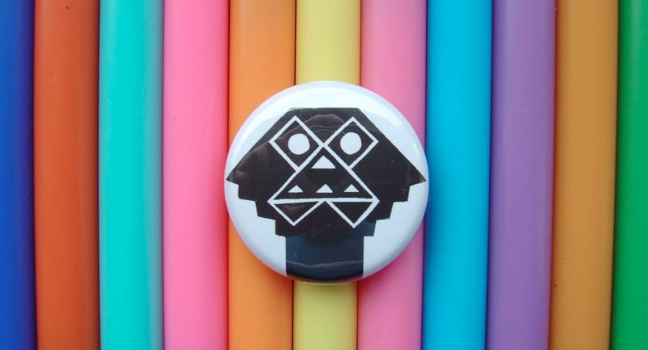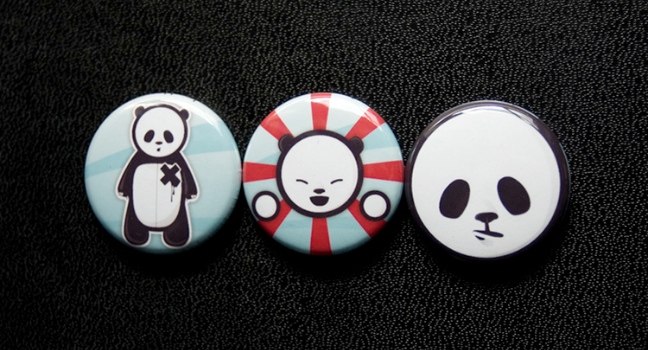
As I mentioned in ‘Badges’ for Lifelong Learning: Reframing the Debate, whilst most people have been very enthusiastic about the concept of badges to credentialise lifelong informal learning, there have been a number of criticisms around the idea. It might help if you go and read that post before you read this one. 🙂
Most of the issues, it would seem, that people have around the ideas of an alternative credentialing system in education revolve around how it is implemented. I’m fairly sure that there’s not too many people who think that the current status quo is serving us well. As far as I understand it, the idea being proposed by Mozilla, HASTAC, et al. is for badges to augment, not replace what we’ve already got in terms of assessment systems: it’s credentialing things that are usually fairly intangible.
I came across a thoughtful and considered response to the potential issues around #openbadges and, perhaps more importantly, #dmlbadges in this post by @timothyfcook via Scoop.it. I think it’s worth quoting Tim at length:
This phrase “badge friendly” is the kicker, because it entails that certain things are not badge friendly. What these things are is certainly open for debate, but it is likely that skills/experience that are more creative and require qualitative analysis will present difficulties. Additionally, skill sets that are unique, constantly in flux, or in progressive fields will be difficult to credential in a standard fashion. If certain things are left out of the badge system, does it lose its credibility? For a new system to be wholly accepted, its accrediting process needs to offer equality and completeness.
That brings me to the second question, the problem of standardization. Although the university system is downright awful at providing an acceptable standard of quality among college graduates, it doesn’t exempt this new idea from the same critique. The problem with traditional college degrees is that the type of new institutions grows and changes too rapidly, while the grading standards varies wildly between schools, or even programs within schools. An “A-” at M.I.T. is different from an “A-” at Dryer University. Meanwhile, grading standards have been falling across the country, as schools are increasingly valuing student retention and graduation rates over academic rigor.
Meanwhile, the only real standard for valuing a student’s overall college experience is the prestige of their alma mater. If student Jack studied Creative Writing at the University of Iowa that means something, but if student Jill studied it at the California University of Pennsylvania that doesn’t mean much… yet Jack and Jill both have the same “badge”, they both have a B.A. in Creative Writing.”
…
This brings me to the final question, which may actually offer some solutions… If this is supposed to operate as a truly “open” educational accreditation system, outside the boundaries of the traditional institution, what will the student assessment process look like? There has to be a full-proof method for awarding these badges to students who have met the requirements. Those who have written on the subject describe a hybrid system. Some of the time badge approval will be granted by compensated experts, we know them as teachers. Other times, however, badges can be granted through a peer review process. This possibly is the scariest, but also most powerful component of the new badge system. This peer review process, in many ways, is the best hope it has to revolutionize the process and create a truly “open” accreditation system.
Tim suggests four ways to make badges work:
- “Appeal to our selfish need for self-preservation or our dignity: constantly remind students that, when they are reviewing the work of their peers, they are reviewing their own work. This only works if peer assessment is actually not quite peer assessment, but only done by students who have already received the badge in question.”
- “As mentioned, badge-issuers should always be people who have already completed the badge. This way, they will not only have incentive to uphold the quality that badge represents, but they will also know the content really well and act as capable critics.”
- “In addition to the social mechanism that could ensure quality assessment from peers, there needs to be a system that would ensure a good quantity of assessors. Simple: after your first badge, for every new badge you are awarded, you are required to assess the badge application of 3 (or more) students, offering them written feedback and a decision. This way you ensure a large and consistent pool of potential assessors.”
- “Finally, in order to ensure un-biased quality assessments from peers, each badge-applicant should be assessed by at least 3 peer assessors.“
There’s some great ideas in what Tim has suggested, although I’m not entirely sure that completing a badge yourself is a necessary and sufficient condition for being able to assess somebody else’s. What I think Tim does show is that:
- criticisms of badges apply to the potential implementation of any system
- standardisation of badges is not necessarily a good thing (it’s perhaps using outdated thinking about ‘grades’)
- the peer-to-peer element of badges is important, and potentially revolutionary
What do you think? Have you explored openbadges.org and dmlcompetition.net? How could badges work in your context?



